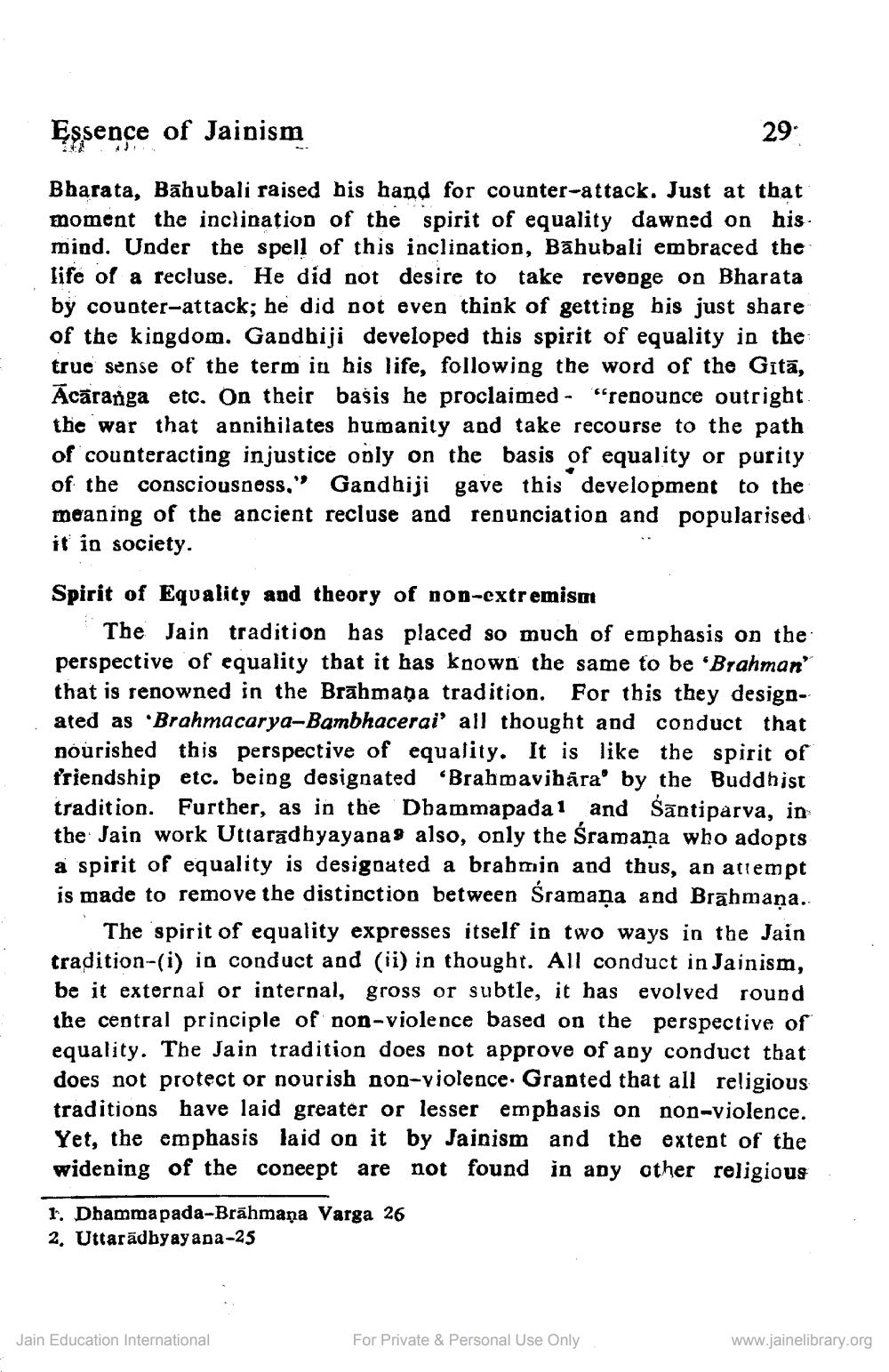________________
Essence of Jainism
29
2
)
Bharata, Bāhubali raised his hand for counter-attack. Just at that moment the inclination of the spirit of equality dawned on his mind. Under the spell of this inclination, Bahubali embraced the life of a recluse. He did not desire to take revenge on Bharata by couoter-attack; he did not even think of getting his just share of the kingdom. Gandbiji developed this spirit of equality in the true sense of the term in his life, following the word of the Gītā, Ācāranga etc. On their basis he proclaimed - "renounce outright the war that apnihilates humanity and take recourse to the path of counteracting injustice only on the basis of equality or purity of the consciousness," Gandhiji gave this development to the meaning of the ancient recluse and renunciation and popularised it in society.
Spirit of Equality and theory of non-extremism
The Jain tradition has placed so much of emphasis on the perspective of equality that it has known the same to be 'Brahman that is renowned in the Brahmana tradition. For this they designated as Brahmacarya-Bambhacerai' all thought and conduct that nourished this perspective of equality. It is like the spirit of friendship etc. being designated 'Brahmavibāra by the Buddhist tradition. Further, as in the Dhammapada 1 and Santiparva, in the Jain work Uttaradhyayanas also, only the śramaņa who adopts a spirit of equality is designated a brahmin and thus, an aliempt is made to remove the distinction between Sramana and Brahmana.
The spirit of equality expresses itself in two ways in the Jain tradition-(i) in conduct and (ii) in thought. All conduct in Jainism, be it external or internal, gross or subtle, it has evolved round the central principle of non-violence based on the perspective of equality. The Jain tradition does not approve of any conduct that does not protect or nourish non-violence. Granted that all religious traditions have laid greater or lesser emphasis on non-violence. Yet, the emphasis laid on it by Jainism and the extent of the widening of the coneept are not found in any other religious
1. Dhammapada-Brāhmaṇa Varga 26 2. Uttarādbyayana-25
Jain Education International
For Private & Personal Use Only
www.jainelibrary.org




